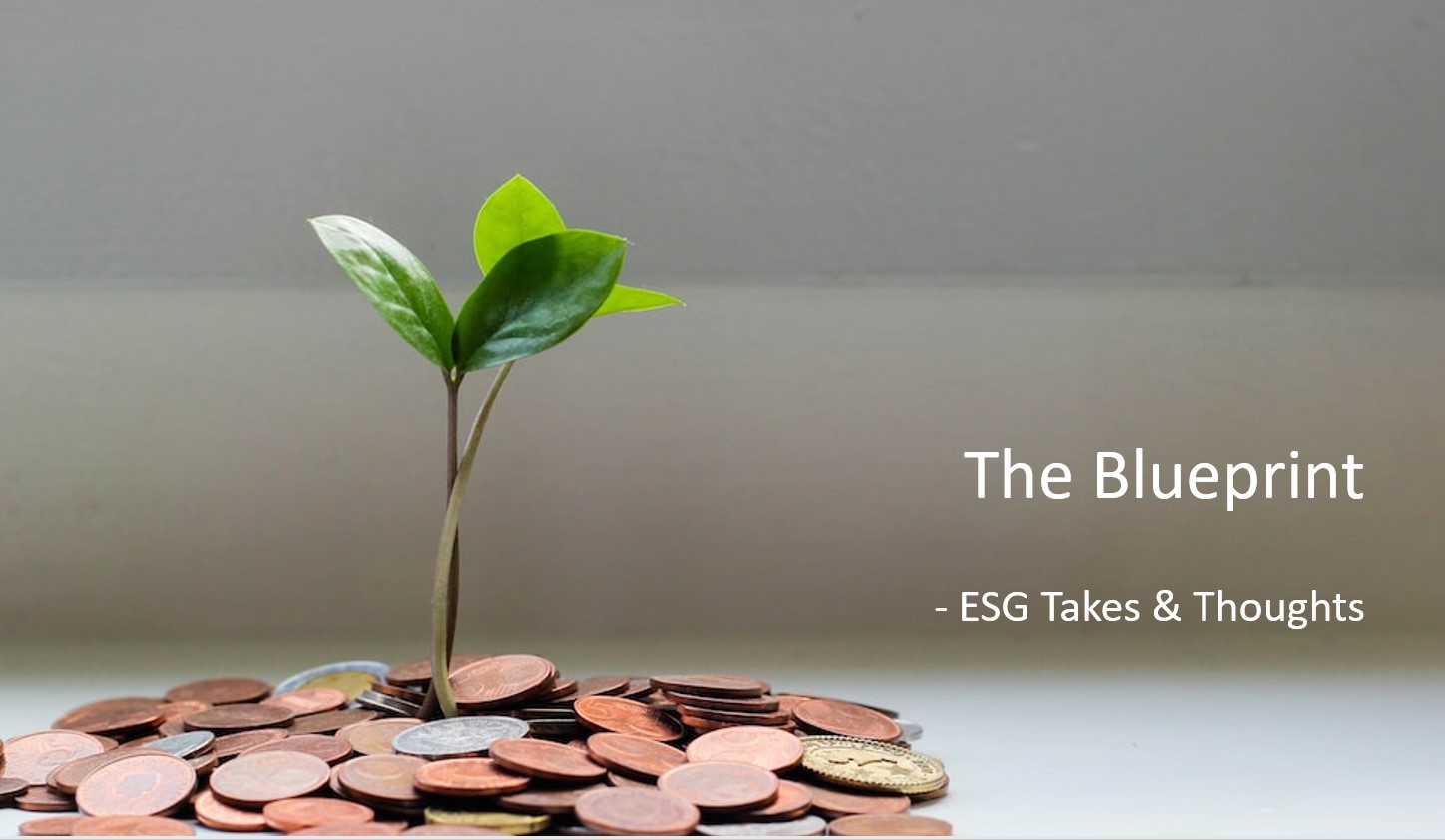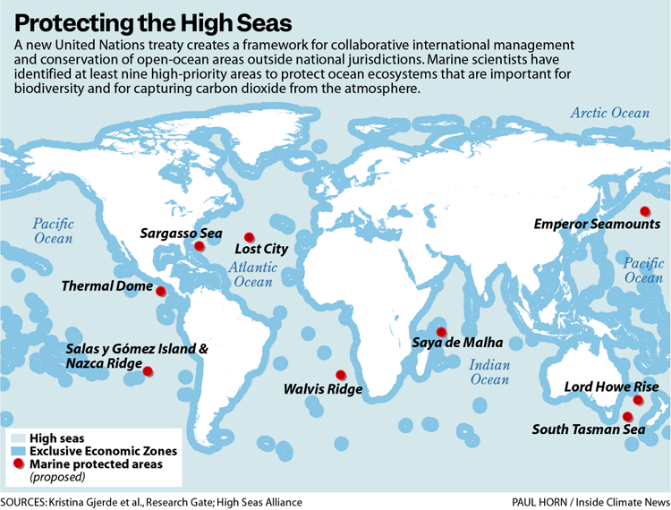
Who owns the ocean?
- The ocean supports 13 industries, including fishing, shipping, and communications
- These industries are reliant on health ecosystems and ocean resources (space, water, fish, minerals)
About two thirds of the world’s oceans lie beyond the jurisdiction of any single country. But if so much of the oceans lies outside national boundaries, who will safeguard it? To answer this question, the Biodiversity Beyond National Jurisdiction (BBNJ) treaty on the conservation and sustainable use of marine biological diversity in the high seas was adopted last June.
Navigating this unchartered territory requires careful consideration and the BBNJ treaty will have implications for shipping, fishing, deep-seabed mining and submarine cable sectors (ICPC). Last week, we looked at the complex relationship between conflict and security of subsea infrastructure. We also need to consider how human activities can affect biodiversity. Existing international law under the United Nations Convention on the Law of the Sea (UNCLOS) grants states the freedom to lay subsea cables, a vital component of our modern economy (NUS).
However, these are often installed by private companies operating outside the control of any single nation. To date, progress towards the treaty entering into force has been slow, with just two ratifications from Palau and Chile – far from the 60 ratifications needed. How can we ensure the continued development of crucial infrastructure like subsea cables while safeguarding the fragile ecosystems on which all life depends?

Photo source: Kristina Gjerde et al., High Seas Alliance, Inside Climate News
The BBNJ is a step towards the global goal of protecting at least 30% of the ocean. Scientists have identified several key areas for protection, including the Saya de Malha bank – famous for housing the world’s largest seagrass meadow which plays a key role in absorbing carbon emissions.
 Photos: (Left) Global Fishing Activity. Photo from Global Fishing Watch.
Photos: (Left) Global Fishing Activity. Photo from Global Fishing Watch.
(Right) Global shipping routes. Photo from shipmap.org
Singapore was among the first countries to sign the Marine Biodiversity of Areas Beyond National Jurisdiction (BBNJ) Agreement in New York on 20 September 2023. Home to the world’s second-largest port and the largest transhipment hub, Singapore is strategically located at the crossroads of trade routes linking Europe, the United States and Australia, handling about one-fifth of the world’s container transhipment traffic. To minimise disturbance to biodiversity, International Maritime Organisation (IMO) Member Governments like Singapore are obliged to ensure that ships flying their flag comply with rules on areas to be avoided to keep shipping away from areas at risk of damage from international shipping activities such as the Great Barrier Reef and whales’ breeding grounds.
Looking forward
What does sustainable use of our ocean look like in the midst of growing consumption and depleting resources? The BBNJ provides a legally binding instrument to facilitate area-based management, environmental impact assessment and screening of activities in the high seas. This sets the foundation for achieving the four goals (conservation & restoration, sustainable use, benefit sharing and means of implementation) of the Kunming-Montreal Global Biodiversity Framework. At PCM, our ESG analysis identifies well-positioned companies that contribute to a sustainable blue economy; ones that are transitioning to a low-carbon and circular economy in nature-positive ways.
Important Information
This material is provided by Phillip Capital Management (S) Ltd (“PCM”) for general information only and does not constitute a recommendation, an offer to sell, or a solicitation of any offer to invest in any of the exchange-traded fund (“ETF”) or the unit trust (“Products”) mentioned herein. It does not have any regard to your specific investment objectives, financial situation and any of your particular needs.
The information provided herein may be obtained or compiled from public and/or third party sources that PCM has no reason to believe are unreliable. Any opinion or view herein is an expression of belief of the individual author or the indicated source (as applicable) only. PCM makes no representation or warranty that such information is accurate, complete, verified or should be relied upon as such. The information does not constitute, and should not be used as a substitute for tax, legal or investment advice.
The information herein are not for any person in any jurisdiction or country where such distribution or availability for use would contravene any applicable law or regulation or would subject PCM to any registration or licensing requirement in such jurisdiction or country. The Products is not offered to U.S. Persons. PhillipCapital Group of Companies, including PCM, their affiliates and/or their officers, directors and/or employees may own or have positions in the Products. This advertisement has not been reviewed by the Monetary Authority of Singapore.
